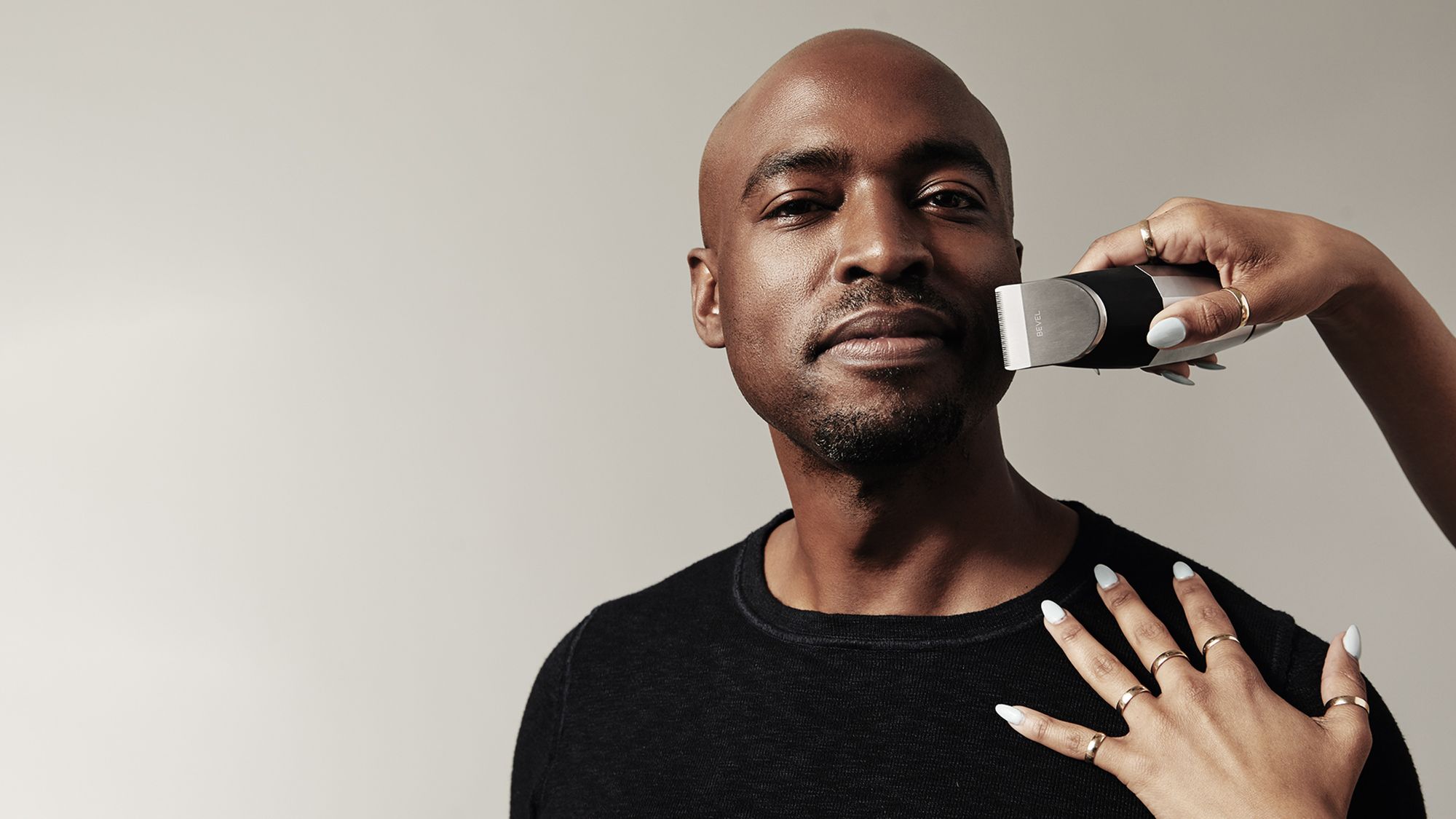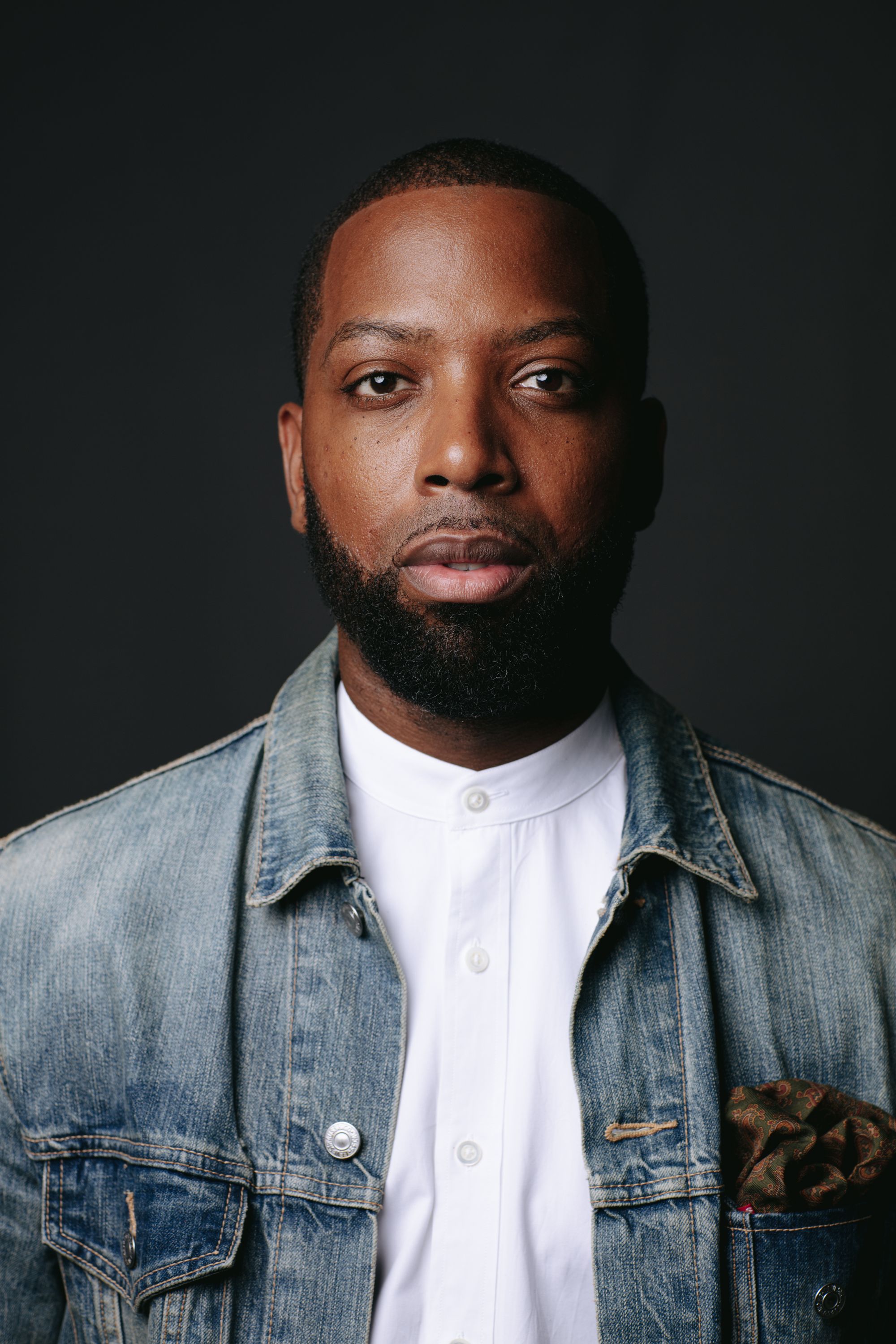The men’s grooming/beauty industry is predicted to hit $166 billion by 2022.

Within this industry, Black men are undoubtedly key consumers to watch. As you know, global culture is often led by American culture, which is led by Black culture (which includes but isn't limited to our influence in music, fashion, beauty, and more).
Specifically for years in the beauty/grooming industry, the usual, over-the-counter products weren't formulated with melanin in mind until recently.
Throughout his life, Tristan Walker, the founder of Walker & Company, was frustrated with not finding products that met his needs as a Black man.
"Shaving irritation and razor bumps [are] issues some 80% of Black men and women have globally," said Walker. "If you have curly hair, this is an issue that you're likely to face."
Because of this, while he was an Entrepreneur-in-Residence with Andreessen Horowitz, a billion dollar venture capital firm, Walker realized that creating a company that met the grooming needs of Black men was something that he was passionate about doing.

“When I was with Andreessen Horowitz as Entrepreneur-in-Residence, I had nine months to figure out what I wanted to do,” Walker said. “It took me several months to realize that I should only be working on things where I fundamentally felt like I was the best person in the world to solve those things. I wanted to build a bank, I wanted to fix trucking, I thought about ideas to optimize the care experience for elderly consumers. But, again, I wasn’t going to be the best person in the world to solve those problems. I felt that all the entrepreneurs that I was inspired by, had one quality about them that I resonated with, and it was their authenticity to the thing that they were building that makes them the best person in the world to build it. And then Ben Horowitz, would always encourage me by asking me one question, ‘Tristan, what do you believe that few people in Silicon Valley understand?”
For Walker, he knew that Silicon Valley, or arguably the world, didn’t understand the need for quality grooming products for Black men. Inspired by this, in 2013, he founded Walker & Company, a startup focused on selling personal care products for people of color. Through Walker & Company, Walker launched Bevel, which consists of shaving products for men, and then launched FORM, a collection of hair products for women.
Since launching his startup, Walker has raised around $33.3 million dollars in venture capital, and his startup was acquired by Procter & Gamble in 2018.
RELATED: Y Combinator CEO Michael Seibel shares tips for startup founders
Since then, while still the CEO of Walker & Company, Walker co-founded CODE2040 with a goal to improve the pipeline of Black and Latino’s employed in the tech industry. Outside of that, he’s also a board member at Foot Locker, Inc. and Shake Shack.
Recently, Mogul Millennial caught up with Walker and he shared his tips on pitching investors, and his advice for other entrepreneurs entering the grooming industry.

Tristan on raising money before having revenue
I raised around two and a half million dollars before launching my company and it wasn’t easy at all; it took a lot of repetition and a lot of meetings. Fortunately, we found people that believed in the vision, and found people that believed that folks around the world deserved to be treated as well as non-folks of color in every space and industry.
Oftentimes while trying to raise money, the topic of larger, more powerful companies in the beauty space would come up. I was also often questioned why something like my company hadn’t been done before.
The thing is, investors weren’t seeing other people doing what we were doing. At the time, there weren’t really any other Black founders, or really any founders, in the beauty space that were focused on the kind of consumer and the products that we were focused on. For me, my pitch was, this is THE time. I would really hone in that the timing was right and that I was the right founder that could pull this idea off.
There were beauty companies that had been around for decades and some even centuries. My pitch was that these companies had been around for hundreds of years, but hadn’t served the Black audience yet in the way that was needed. Also, the people that would’ve been in the room at these companies to make the decisions on diversifying the products weren’t typically present.
When I would pitch, I would walk in as a founder that authentically had a problem that he was trying to solve, and with a large market. Having this really helped me in my pitching journey. Despite this, I did have way more people that were turning me down versus the people who eventually invested in me. Nonetheless, I kept honing in on my founder market fit and the big opportunity that was present with Walker & Company.
On finding the right investor
When I decided to raise capital, I just wanted the money. Haha, but seriously, I knew that I needed to raise money to quickly grow my company. Naturally, I looked for people that truly believed in the problem I was solving, my vision, and believed in me as a founder.
Raising money is hard enough, so sometimes it’s hard to be picky in the beginning. For me, I had to get the money for my company by any means necessary. Fortunately, I was able to raise money from people who were ultimately right for what I was doing.

Tristan on what you should know before pitching
Before you begin to pitch, you should know why you even need to raise money at all. I think there’s an assumption that folks feel that they need to raise money. Depending on what kind of business that you have, it may not be necessary to raise money.
It took me from raising a lot of money to see the potential problems that come from raising money than the alternative. Once you raise money, you have to return it, and you have to return it at a multiple. That multiple may be something that’ll force you to make trade offs to the business that you're creating, and you may not be willing or wanting to make. You can build a very, very successful business without raising any money. I’m not saying that to suggest that you shouldn’t raise money, but more so to see if you have thought about not raising money (and if you haven’t, why not?). Keep in mind, there is no guarantee that you’ll raise money, no matter how many times you pitch investors. I think it’s important that you ask yourself these questions, and have this type of point of view. Doing so will help you firm up and narrow your focus on how you plan to fund and grow your business. I think all too often we forget about the potential negatives that come with raising money as much as we think about the positives.
RELATED: How to perfect your business pitch
Tristan’s tips for entrepreneurs in the beauty space that are in the pre-revenue phase
When you’re creating your deck, you need to touch on why you are the best person in the world to do the business and solve the problem, and no one else. It sounds like a crazy question to ask yourself, but it’s an answer you need to figure out. If you don’t strongly feel that you are the best person in the world to solve this problem, then that means someone else is so why would someone invest in you. You should be able to clearly state in your deck why you are the best person, and why you’re the best to solve the problem at hand.
Next, you need to show that there is an opportunity that no one else can see. That doesn’t necessarily mean that the market size today has to be big, because you could be creating a market that no one knows exists, or your company could be expanding the current market. That’s really what I did when I pitched Bevel. Bevel helped create and expanded a market. Black men weren’t really shaving because of a variety of reasons. I had to share that the opportunity for what Bevel was doing was bigger than what the research reports were suggesting. I think those two things are the most essential. Investors have to see that you’re the right person, and see the unbounded opportunity in what you are building.
On what makes Tristan a Mogul Millennial
I believe that if we're going to change the game, people have to actually put in the work to change the game. If you want to see change, you have to actually just do it. Throughout my career, I’ve done that; I've created companies that have brought about change because it’s something that’s important to me.


